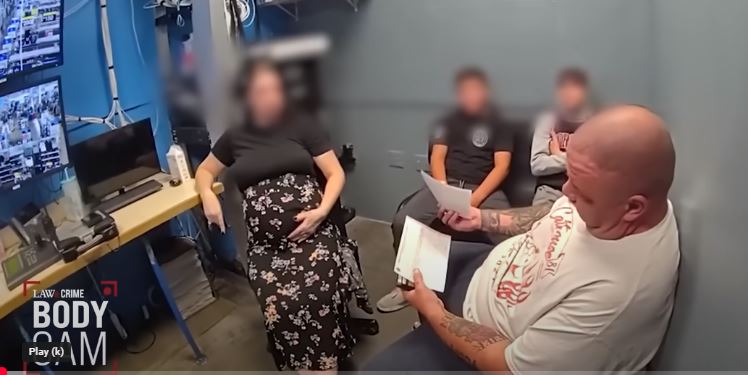The Expanding List of Crimes that Restrict Gun Ownership in Michigan
Here are the Laws
Domestic Violence
The legislature passed a package of bills that add subsets to certain misdemeanor offenses (identified below) for offenses involving domestic relationships.
See 2023 PA 199 (eff. Feb 13, 2024).
Violation of these provisions are considered domestic violence. Misdemeanors involving domestic violence are defined in MCL 750.224f(10)(c), amended by 2023 PA 201 (eff. Feb 13, 2024), and include the following:
- MCL 750.81(2)and (4): Assault or assault and battery of a spouse or former spouse
- MCL 750.81a(2): Aggravated assault or assault and battery of a spouse or former spouse
- MCL 750.115(2): Entering structure without permission; breaking and entering or entering without breaking
- MCL 750.145n(5): Fourth-degree vulnerable adult abuse
- MCL 750.377a(1)(d): Malicious destruction of property ($200 or more but less than $1,000)
- MCL 750.377a(1)(f): Malicious destruction of property (less than $200)
- MCL 750.380(5): Malicious destruction of house, barn, or building ($200 or more but less than $1,000; or less than $200 with one or more prior convictions)
- MCL 750.380(7): Malicious destruction of house, barn, or building (less than $200)
- MCL 750.411h(2)(c): Stalking
- MCL 750.540e(1)(h): Malicious use of a telecommunications service or device
Importantly, under MCL 750.224f(5), amended by 2023 PA 201 (eff. Feb 13, 2024), an offender convicted of a misdemeanor involving domestic violence, as listed above,
shall not possess, use, transport, sell, purchase, carry, ship, receive, or distribute a firearm or ammunition in this state until the expiration of 8 years after all of the following circumstances exist:
(a) The person has paid all fines imposed for the violation.
(b) The person has served all terms of imprisonment imposed for the violation.
(c) The person has successfully completed all conditions of probation imposed for the violation.
Have your rights been violated?
Have your driving priviledges been revoked?
Has your professional license been suspended?
Second Amendment rights taken away?
Have you been charged with a crime?
Call our office to see if we can help
Komorn Law 248-357-2550
Other Crimes
In addition to domestic violence measures, 2023 PA 201 (eff. Feb 13, 2024) expands the definition of felony to include violations “punishable by imprisonment for a term exceeding 1 year.” MCL 750.224f(10)(b), amended by 2023 PA 201 (eff. Feb 13, 2024) (emphasis added). Previously, a felony was defined as a violation of law punishable by imprisonment for four or more years. Consequently, 2023 PA 201 increases the number of offenses that fall under the three-year firearms and ammunition prohibition in MCL 750.224f(1).
Juvenile Reforms
Screening Tools and Risk Assessment
2023 PA 287 (eff. Oct 1, 2024) amends the Juvenile Diversion Act, MCL 722.822, .823, .826, and .829, to allow the use of risk and mental health screening tools before a diversion decision for the minor is made. The amended act states that these tools may not be conducted on a minor who is either (1) accused or charged with a specified juvenile violation or (2) currently under supervision in the juvenile justice system by the court or the Department of Health and Human Services. A minor may not be diverted under the act unless a law enforcement official or court intake worker (1) receives the results of a risk screening tool and a mental health screening tool for the minor and (2) uses the results of the risk screening tool and the mental health screening tool as well as the best interests of public safety and the minor to inform the decision to divert the minor.
In addition, 2023 PA 289 (eff. Oct 1, 2024) amends MCL 712A.2f to require a court to consider the results of a screening before placing a juvenile’s case on the consent calendar. The results of a screen under these amendments are confidential case records.
The procedure for juvenile detention has also been modified. 2023 PA 290 (eff. Oct 1, 2024) amends MCL 712A.15 and .16 to state that before a juvenile may be detained in a secure facility pending hearing, an individual or agency must use a detention screening tool on the juvenile. The court then must consult those results and follow any rules regarding their use. The amendments further specify that any statement or incriminating evidence obtained during screening is not admissible as evidence in a court proceeding.
2023 PA 298 (eff. Oct 1, 2024) amends MCL 712A.18 to require a designated, trained individual or agency to conduct a risk and needs assessment for each juvenile before a disposition. The amendment also requires a court to consider the results of the assessment, in addition to other factors, when making a disposition decision. Finally, the amended statute requires an additional assessment if six months have passed, if the juvenile experienced a major life event, or if there was a major change in the juvenile’s proceedings.
Factors to Consider to Try a Juvenile as an Adult
Effective October 1, 2024, 2023 PA 291 amends MCL 712A.2d, .2f, and .4 by modifying the factors a court must consider before trying a juvenile as an adult. These factors now include
- the seriousness of the alleged offense in terms of community protection;
- the juvenile’s culpability in committing the alleged offense;
- the juvenile’s prior record of delinquency that would be a crime if committed by an adult;
- the juvenile’s programming history, including any out-of-home placement or treatment, and the juvenile’s past willingness to participate meaningfully in available programming;
- the adequacy of the programming available to rehabilitate and hold accountable the juvenile in the juvenile justice system and the juvenile’s amenability to treatment;
- the dispositional options available for the juvenile;
- the juvenile’s developmental maturity, emotional health, and mental health;
- if the juvenile is a member of a federally recognized Indian tribe, culturally honoring traditional values of the juvenile’s tribe; and
- the effect on any victim.
See MCL 712A.2d(2)(a)–(i), amended by 2023 PA 291 (eff. Oct 1, 2024).
Time to Complete Diversion
2023 PA 288 (eff. Oct 1, 2024) amends MCL 722.825 and .826 to limit the time a minor has to complete a diversion agreement to not exceed three months unless it is determined that a longer term is necessary.
Delinquent Accounts
2023 PA 292 (eff. Oct 1, 2024) amends MCL 600.4803 to exempt a juvenile or their parent or guardian from a late penalty if the juvenile failed to pay a fee or cost associated with the proceedings in 56 days. Furthermore, 2023 PA 293 (eff. Oct 1, 2024) amends MCL 769.1 to delete certain provisions relating to reimbursement for court fees in a juvenile case.
Crime Victims’ Rights
MCL 760.21b(1), added by 2023 PA 180 (eff. Feb 13, 2024), states in part that “[a] police officer or a prosecuting attorney may provide a domestic or sexual violence service provider agency with the name, demographics, and other pertinent information of, and information to facilitate contact with, a victim of domestic or sexual violence for the purpose of offering supportive services to the victim.”
2023 PA 179 (eff. Feb 13, 2024) amends MCL 780.758, .788, and .818 to specify that certain items already exempted under the Freedom of Information Act, such as pictures, photographs, drawings, or other visual representations, including any film, videotape, or digitally stored image of a victim that is made available through a public court proceeding streamed on the Internet or other means, may be blurred.
2023 PA 178 (eff. Feb 13, 2024) amends MCL 780.765, .793, and .825 to allow a victim to remotely provide an oral impact statement at a disposition or sentencing.
Reproductive Rights
Numerous bills were passed, including 2023 PA 205, 208, and 286 (all effective February 13, 2024), that codify the rights to reproductive freedom and repeal and modify certain acts to reflect this codification. The repealed or modified acts include the following:
- MCL 333.1081 et seq.: Legal Birth Definition Act
- MCL 333.1091: Family planning or reproductive services; allocation of funds
- MCL 550.541 et seq.: Abortion Insurance Opt-Out Act
- MCL 750.323: Manslaughter; death of quick child or mother from use of medicine or instrument
Hate Crimes
2023 PA 277 (eff. Feb 13, 2024) added MCL 750.147c to the Michigan Penal Code to state that a person is guilty of institutional desecration if the offender “maliciously and intentionally destroys, damages, defaces, or vandalizes, or makes a true threat to destroy, damage, deface, or vandalize” specified institutions identified in MCL 750.147c(1)(a)–(g) “because of the actual or perceived race, color, religion, sex, sexual orientation, gender identity or expression, physical or mental disability, age, ethnicity, or national origin of another individual or group of individuals, regardless of the existence of any additional motivating factors.” The act includes felony and misdemeanor punishments, depending on the dollar value of the property damage or injury.
Vulnerable Adults
MCL 750.145h(1), added by 2023 PA 275 (eff. Mar 7, 2024), states in part that “[a] person shall not intentionally or knowingly harass, abuse, threaten, force, coerce, compel, or exploit the vulnerability of a vulnerable adult in a manner that causes the vulnerable adult to provide that person, or any other person, sexually explicit visual material.” The statute also provides for misdemeanor and felony penalties for these offenses.
Health Professionals
Numerous bills were passed to protect health professionals and medical volunteers. MCL 750.81, .81a, and .82, which govern assaults, were amended by 2023 PA 271 and 272 (both effective March 5, 2024) to specify that if the victim of an assault is a health professional or medical volunteer and the offense occurs while the victim is performing their duties, the offender is subject to an enhanced penalty. In addition, the statutes require health facilities to post prominent, visible signs about the enhanced penalty.
Elections
MCL 168.931b(1), added by 2023 PA 253 (eff. Feb 13, 2024), states in part that “[a]n individual who intimidates an election official because of the election official’s status as an election official, with the specific intent of interfering with the performance of that election official’s election-related duties, is guilty of a crime.” The new law also criminalizes actions that prevent an election official from performing their duties. It does not apply to “constitutionally protected activity,” such as “reporting, news gathering, protesting, lobbying, advocacy,” or other activities of public interest or concern.

Related Articles
Terry Stop and Refusal to Identify Yourself to Police
Because this is how it always goes...This is the second part of this post. Read this first - Just Because You're Hanging Out in a High Crime Area Doesn't Make You Suspicious.Standard for Investigatory Detentions / Terry Stops Under Terry v Ohio and other well...
Just Because You’re Hanging Out in a High Crime Area Doesn’t Make You Suspicious
Mere presence in a “high crime” area does not provide particularized suspicion of criminal activity for an investigatory detention.People vs Prude In People v Prude, Prude was in a parked vehicle at an apartment complex that was regularly patrolled by police because...
Gun buyback program – Michigan
There's another bounty to be claimed besides turning in your neighbor.Defined here in HB6144 can mean so many things... “firearm” means any weapon that will, is designed to, or may readily be converted to expel a projectile by action of an explosiveEntrepreneurs get...
Sextortion – Michigan
Sextortion - Extortion with an S.Michigan House Bills 5887 and 5888 make sextortion illegal in Michigan. The law defines sextortion as a threat to create or disseminate sexually explicit images or videos of another person to coerce them. The new law makes a first...
More Posts

When Can Police Take Your Dash Cam?
You work hard. Now get ready to work harder to prepare to give more.In Michigan, police can take your dashcam footage in specific situations, primarily when they believe it could serve as evidence in a criminal investigation. Michigan law permits officers to seize...

People who are going to need a Lawyer – November 12, 2024
People who are going to need a LawyerMan so drunk field sobriety tests were ‘too dangerous’ sentenced to life in prison for repeated DWI convictions‘Several terabytes’: Diddy prosecutors shed light on ‘voluminous’ discovery, including iCloud accounts and dozens of...

Cambridge Analytica data breach comes before court
Oral arguments in Facebook v. Amalgamated Bank will beginThe justices are set to review securities law as they hear arguments in a significant case linked to the 2015 data breach involving Cambridge Analytica and Facebook. The tech giant’s effort to fend off federal...

Search and Seizure – Consent or Plain view
The Fourth Amendment was established to protect individuals from unreasonable searches and seizures, yet there are exceptions.In Michigan, understanding the concepts of search and seizure, particularly regarding consent and plain view, is crucial for both law...

A drunk driving investigation, a car wreck and a blood draw
A Case Summary: People v. Blake Anthony-William BartonOn October 11, 2024, the Michigan Court of Appeals issued a decision in the case People of the State of Michigan v. Blake Anthony-William Barton. The case involved a drunk driving investigation following a car...

Police say they can tell if you are too high to drive
Police say they can tell if you are too high to drive. Critics call it ‘utter nonsense’Haley Butler-Moore sped up to pass a semi on the highway when she suddenly saw the police lights. She’d left Albuquerque hours earlier, heading to a Halloween party in Denver. Tired...

Cannabis – The Rise and Fall and Trail of Survivors Pile Up
Thieves make off with 1,000 pounds of premium flower in cannabis from a corporate grower in Michigan. Then, the GM sells off 650+ pounds to pay employees.The recent theft of over 1,000 pounds of marijuana from 305 Farms, a corporate cannabis grower in West Michigan,...

If you have an LLC you must comply or face fines and possible prison
You work hard. Now get ready to work harder to prepare to give more.If you own or are a member of an LLC.You have a deadline of January 1, 2025Call us we can take care of it for you. 248-357-2550The new Beneficial Ownership Reporting requirements for LLCs and other...

Compounding Charges Laws in Michigan
Understanding Compounding Charges Laws in Michigan Compounding charges refer to the illegal act of accepting or agreeing to accept a benefit in exchange for not prosecuting a crime. In Michigan, this is considered a serious offense, and the law specifically prohibits...

Harris unveils new proposals targeting black men with cannabis legalization
"Harris unveils new proposals targeting Black men as she looks to shore up Democratic coalition" CNNAmid the ongoing national issues, Vice President Kamala Harris introduced new initiatives on Monday aimed at addressing the needs of Black men as she works to bolster...















